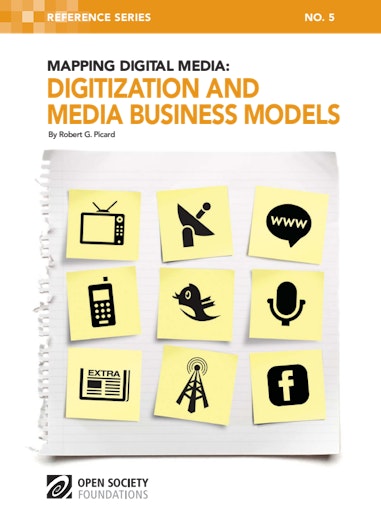The Mapping Digital Media project examines the global opportunities and risks created by the transition from traditional to digital media. Covering 60 countries, the project examines how these changes affect the core democratic service that any media system should provide: news about political, economic, and social affairs.
Media businesses need to be sustainable, but their traditional sources of income are, in many cases, drying up. In this paper, Robert Picard explains why this is happening, and what media outlets can do about it.
While the internet creates opportunities for news and general information providers, it yields only limited monetization. It disaggregates news content, thus stripping it of the bundled value it creates in print. At the same time, international and national news have become ubiquitous and available on many platforms at little if any cost to the end-consumer.
Yet there is still a role for content creators and aggregators (newspapers, magazines, broadcast channels, and internet sites) to make selections and provide quality control. This role is badly needed by consumers, who are overwhelmed by news, information, entertainment, and marketing messages. Faced with this cornucopia, consumers need to become more literate about information and entertainment processes and sources.
Download
-
Mapping Digital Media: Digitization and Media Business Models (195.87 Kb pdf file)
Download the complete 23-page report.
